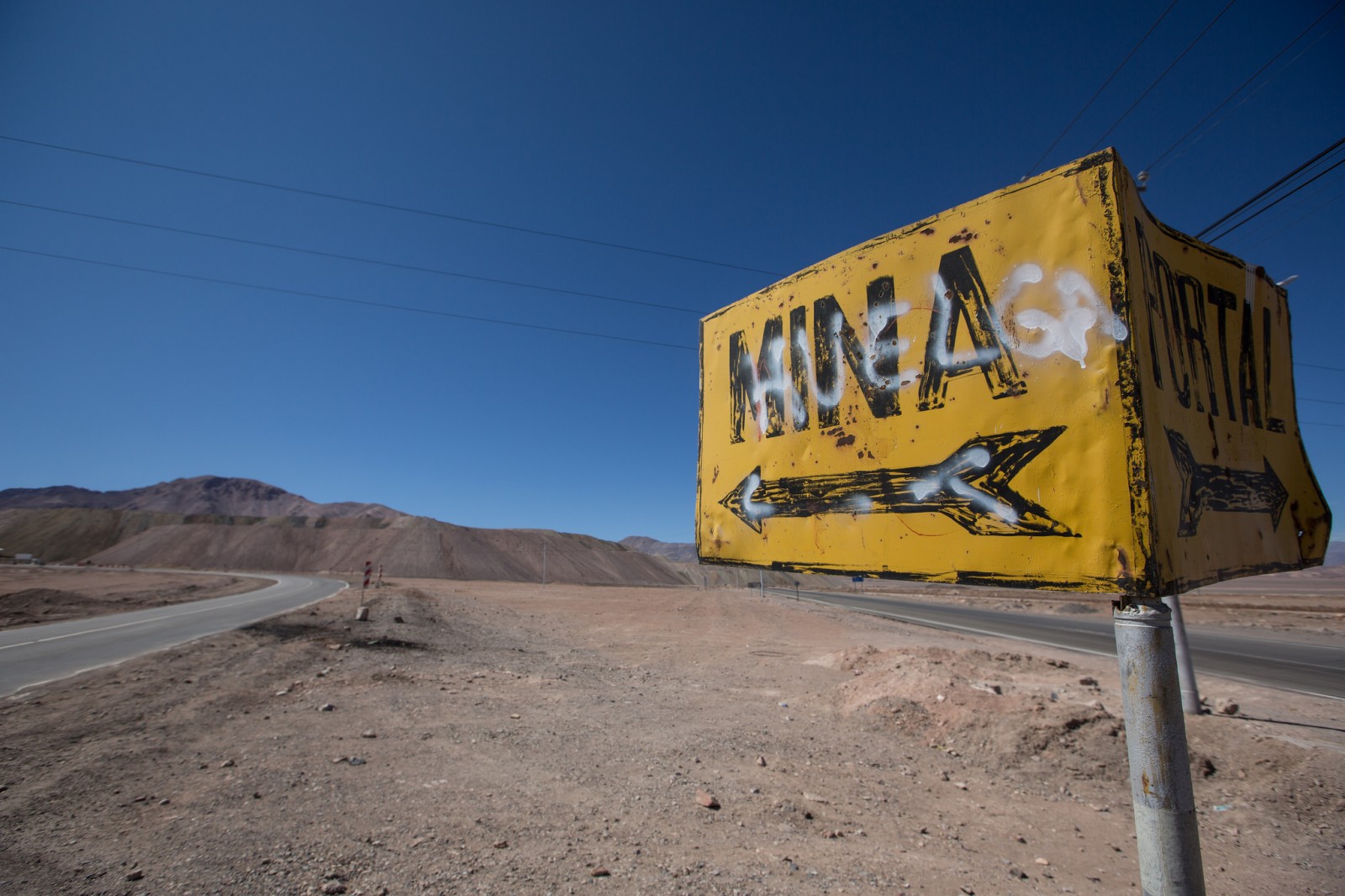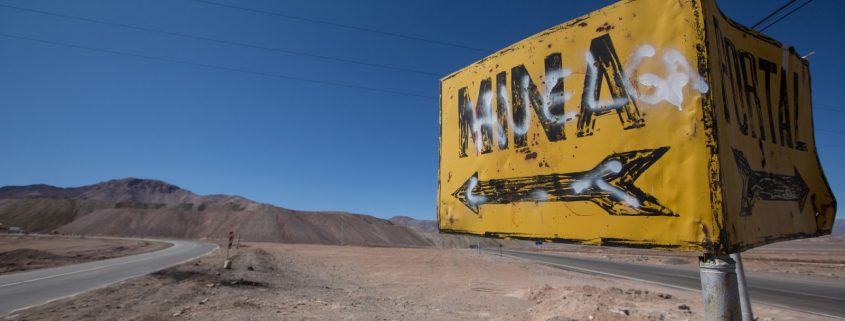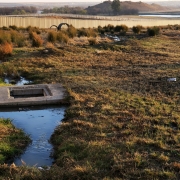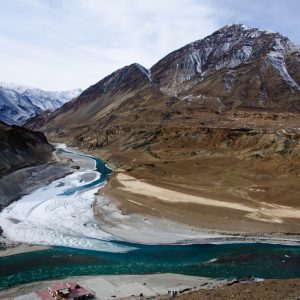World Bank Tribunal Rules Against El Salvador Gold Mine Involved in Water Conflict
El Dorado decision, seven years in the making, raises risk of stranding big infrastructure projects.

A World Bank tribunal found that El Salvador’s decision to deny an Australian company permission to mine for gold was legal. The decision is a rebuke to international companies who view the 12-year-old Central America Free Trade Agreement, and some 3,000 other international trade pacts, as protection against national pollution control and public health statutes.
By Keith Schneider, Circle of Blue
When eastern El Salvador’s deep veins of gold, silver, and copper were first identified in the 1960s, the global mining industry operated under accepted rules of exploration that gave scant attention to water supply and pollution, land damage, or community engagement. The big western mining companies of the 20th century dropped into impoverished rural areas, ripped into the earth, fouled rivers, and left communities feeling betrayed.
It’s not clear precisely when the era of industrial privilege was replaced by a new age of citizen opposition, financial loss, and stranded assets. The shift in operating principles, though, has plainly begun and conflicts over water are a big reason. The era of industrial privilege was replaced by a new age of citizen opposition, financial loss, and stranded assets. The shift in operating principles, though, has plainly begun and conflicts over water are a big reason.
The seven-year-old case was brought in 2009 by Pac Rim Cayman, a Canadian mining company, against the El Salvador government. The company argued that it had fulfilled all of the national requirements for developing the El Dorado gold and silver mine in El Salvador’s eastern highland Cabañas region. El Salvador, though, had prohibited all mining in 2008 because of extensive water pollution from a previous big mine in San Sebastián that prompted a national political crisis. The government refused to issue a mining permit for the El Dorado project.
Tribunal Considers Mining
Pac Rim Cayman filed its complaint with the International Centre for Settlement of Investment Disputes (ICSID), a World Bank unit that decides international investment cases. At issue was an international company’s right to mine under the rules of a free trade agreement against a sovereign nation’s authority to say no in order to secure its natural resources, prevent pollution, and abide by the will of its citizens. Pac Rim Cayman, which in 2013 was purchased by OceanaGold, an Australian company, sought $US 250 million in damages to recover what it said were tens of millions of dollars in costs it incurred to prepare a mine site that it was never allowed to develop.
In deciding against the company, and awarding El Salvador $US 8 million to cover legal expenses, the three-member ICSID tribunal found that denying OceanaGold a mining permit was a legitimate exercise of El Salvador’s sovereign authority. The tribunal’s ruling is a rebuke to international companies who view the 12-year-old Central America Free Trade Agreement, and some 3,000 other international trade pacts, as protection against national environmental and public health statutes.
“The ruling demonstrates that free trade agreements are not inviolable and that states do not become subject to the rules of free trade agreements where those rules conflict with other basic interests, such as, in this case, guaranteed access to potable water,” said Damien Kingsbury, a professor of International Politics at Deakin University in Melbourne, Australia, and author of a 2014 Oxfam Australia report on the case. “Free trade agreements are intended to facilitate trade, but I don’t think anyone ever envisaged that they should do so to the immediate detriment of whole populations.”

Shrine in El Salvador to mine worker Nelson Quichillao, who was killed during a protest in July 2015. Photo credit Maina Kiai (flikr creative commons).
Another Yank on Global Mining Sector
The El Salvador case is another yank on the belt that is tightening around the world’s industrial mining sector because of water-related impediments. These conflicts are causing costs to soar, spurring public opposition, forcing mines to close, and stranding billions of dollars in assets. These conflicts are causing costs to soar, spurring public opposition, forcing mines to close, and stranding billions of dollars in assets.
Last year, the Bank of Australia withdrew from financing the Carmichael coal mine in Queensland because of public opposition connected to water supply. Last summer Mineral Commodities Ltd., an Australian company, pulled out of a titanium mine in South Africa following years of protest and violence over land rights and water safety. The Philippines environment agency is auditing the practices of big hard rock mines, including a gold mine owned by OceanaGold, and shutting those that violated environmental laws. Last spring, Newmont Mining shut down its $US 5 billion Conga gold mine because of fierce opposition to its plan to replace four natural lakes in Peru’s northern Andes range with man made reservoirs. The development of 20 other big hardrock mines in Peru are stalled because of public strife around water pollution and supply.
Impact of Ruling
The decision in the El Salvador case lowers the protective fence against national regulators that the mining industry believed it had erected through trade agreements and the International Centre for Settlement of Investment Disputes. “With the outcome of the fight of Salvadorans and their international allies being ruled in their favor, mining companies around the world are receiving a clear signal that they will not have the ICSID tribunals so clearly at their disposal when civil society organizes to defend their environmental and territorial rights,” said Manuel Pérez-Rocha, an associate Fellow at the Institute for Policy Studies, in an email message to Circle of Blue.
For its part, OceanaGold, in a statement, said the ruling will hurt poor nations more than industrial companies. “The company believes that a modern resource industry that operates in a safe and sustainable manner and within internationally recognized best practices has the potential to unlock a sustainable and multi-decade development opportunity for the Republic of El Salvador. However, the company recognizes that the government will need to take positive and definitive steps towards establishing a stable business environment if it wishes to attract foreign investment to establish this opportunity.”
As far as El Salvador is concerned, it does not need or want big mines. “For the people of Cabañas who have been fighting to defend their environment, it is mission accomplished,” El Salvador’s attorney general, Douglas Meléndez Ruiz, told The Guardian newspaper. “It is an important step for the country to have been victorious in this lawsuit.”
Circle of Blue’s senior editor and chief correspondent based in Traverse City, Michigan. He has reported on the contest for energy, food, and water in the era of climate change from six continents. Contact
Keith Schneider











